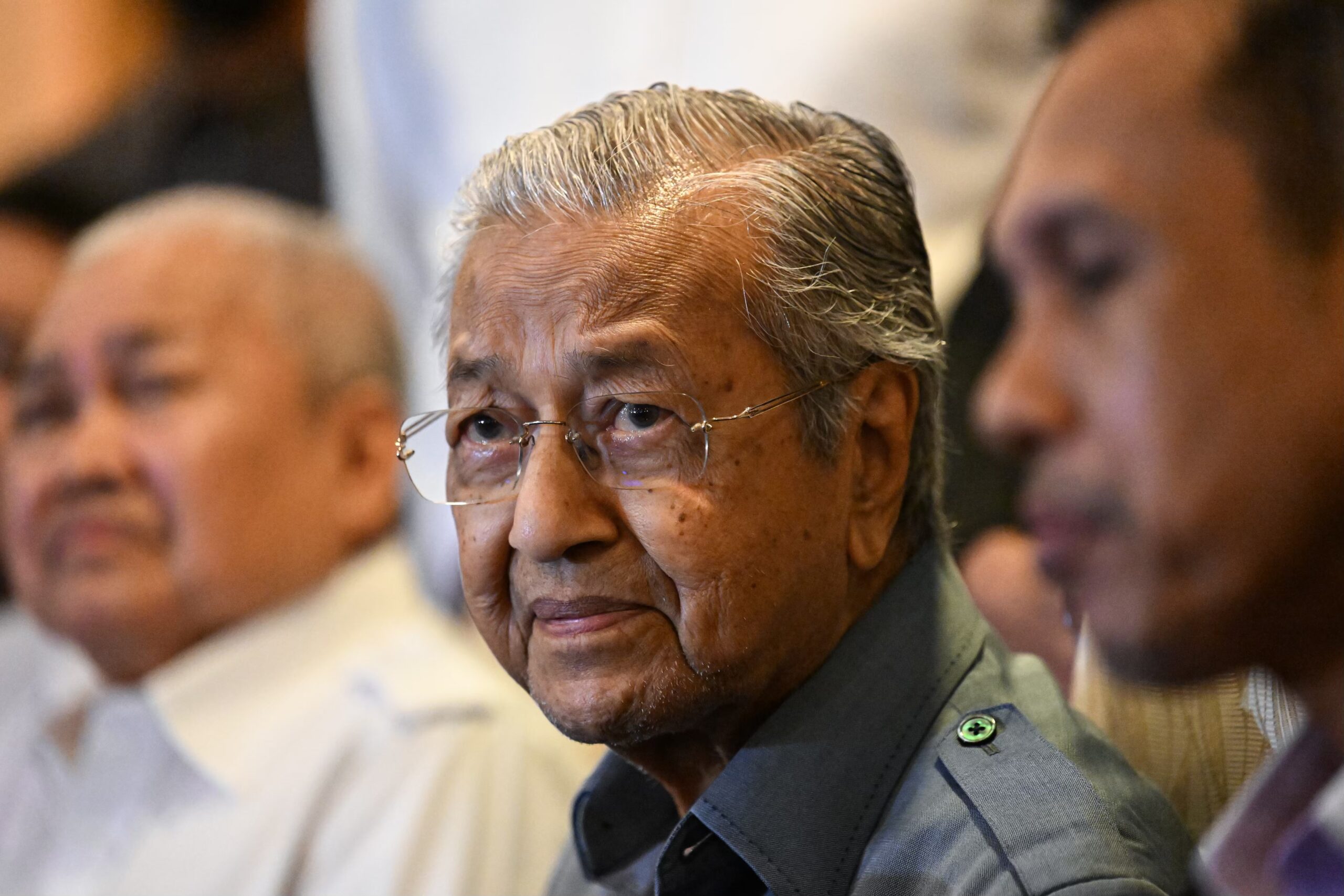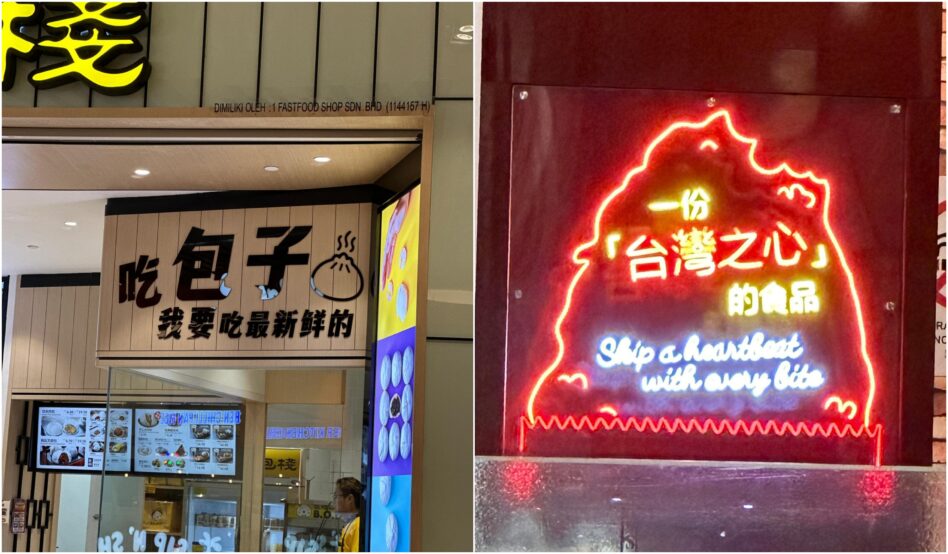
NO one wields ethno-religious rhetoric quite like our former premier Tun Dr Mahathir Mohamad.
As someone who is not a first-timer in making racist and divisive remarks in public, his recent social media post criticising how new malls in Malaysia feature signboards in Chinese with English translations while omitting the national language once again ignited controversy online and in Parliament.
A day later, his post which selectively focused on the B.O.D Frozen Bao store, a Chinese-owned business, to illustrate his point seems both discriminating and misleading.
As a Malaysian who not only loves bao, but also nasi lemak, nasi kandar, roti canai, and many other Malaysian dishes, as well as a philosopher in practice, I cannot help but to be sent into deep reflection on this matter.
Firstly, Dr Mahathir’s statements commit a few logical fallacies. The argument, from the observation of signboards in Chinese to the extreme conclusion that Malaysia risks losing its identity to China, demonstrates a slippery slope argument when there is no evidence of such causal link.

He also seems to be committing a fallacy of self-contradiction and hypocrisy in reasoning when he critiques the use of Chinese signage as endangering Malaysian identity but yet uses English – a language linked to colonial history – on the post.
These are not even the most damaging part of the issue. His remarks also dangerously crossed the boundary between nationalism and racism, and fuelled divisive narratives.
Nationalism is not inherently racist when it focuses on preserving cultural traditions and heritage of a particular ethnic group while still respecting the rights and dignity of other groups.
However, it becomes racist when it marginalises and systematically discriminates against other ethnic groups.
Malaysia is home to different expressions of nationalism. The first version is classical or ethno-religious nationalism that has traditionally been aligned with the Malays as the “Tuan Rumah” or host, and the special obligations to the Bumiputera culture and rights.
Dr Mahathir’s view can be associated with this form of nationalism. For instance, in his book “The Malay Dilemma”, he states that the Malays are “the only people who can claim Malaya as their one and only country,” and immigrants should be assimilated into the dominant host culture.
However, his views at times veer toward a more extreme form of ethno-religious nationalism. This version, as advocated by some PAS leaders, adopts a separatist or segregationist stance, often deepening racial and religious divides in Malaysian society.
Such nationalism frequently employs divisive rhetoric and exploits racial or religious stereotypes to consolidate political power while marginalising and excluding other ethno-religious groups.
Next, we have a more progressive and integrationist version of nationalism known as “civic” or “liberal” nationalism, which is more receptive to the plurality of cultures, cosmopolitan values, as well as liberal-democratic principles.
Despite the progress towards a more inclusive Malaysia, why are we still grappling with a fragmented national identity and weak national unity? Why do racist remarks, like those of Dr Mahathir’s, continue to echo in our society?
An explanation can be found in the persistence of ideological divides and the disconnect between nationalist demands and principles of reason, morality, and cosmopolitanism.
For example, when the demand to protect ethno-religious cultural goods and values harms others, as seen in the racial remarks made by Dr Mahathir, it becomes both rationally and morally indefensible.
If we are genuinely committed to a prosperous and harmonious future for Malaysia, we must actively promote common ground between increasingly polarised ideologies.
Dialogues, not debates nor confrontations, where the aim is understanding, not winning or discriminating, can be the first step towards active collaboration between different cultural groups.
Dialogues can also encourage a critical re-evaluation of our nationalist ideologies and demands, fostering alignment with the principles of reason, morality, and cosmopolitanism.

Firstly, dialogues can promote arguments based on reasoning and justification instead of illogical beliefs or fears.
For example, the assumption that embracing another culture necessarily dilutes one’s culture or threatens cultural identity – a view often associated with extreme ethno-religious nationalists and cultural purists – can lead to a zero-sum mindset and foster hostility toward other cultures.
Dialogues provide opportunities to reconsider assumptions and allow for the consideration of alternative viewpoints.
Through this process, the integration of different cultures can shift from being perceived as a compromise to being recognised as a strength that enriches cultural identity and reinforces cultural pride.
Dialogues can promote moral reflection, through active listening and practicing empathy towards others. They can also foster a more open-minded and cosmopolitan view of nationalism that recognises that culture is fluid and plural, and a product of historical interactions and adaptations.
That said, as we stroll through malls in Malaysia, the vibrant and multilingual signboards should not be seen as a source of division, but rather an invitation to explore the myriad offerings of various cultures, and an opportunity to perhaps strike conversations with strangers when we encounter unfamiliar languages or symbols.
While prioritising Bahasa Malaysia as our national language is essential, this can be achieved inclusively and respectfully by ensuring it is represented on all signboards alongside other languages, without resorting to divisive rhetoric.
Chew Zhun Yee is the co-founder of the Malaysian Philosophy Society.
The views expressed are solely of the author and do not necessarily reflect those of MMKtT.
- Focus Malaysia.
No comments:
Post a Comment
Note: Only a member of this blog may post a comment.